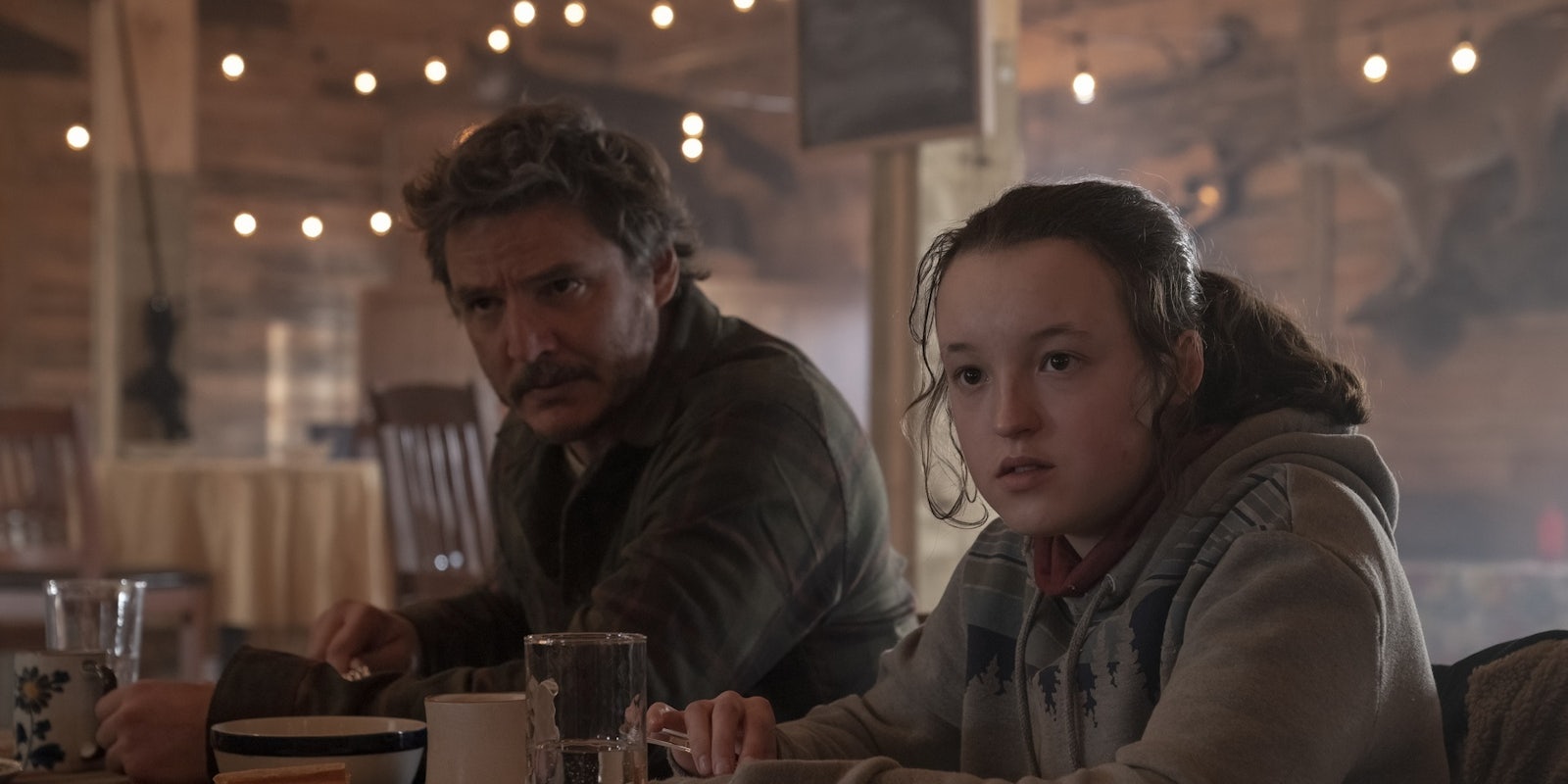Week after week, The Last of Us finds new ways to revitalize the zombie survival genre. Sometimes though, the most exciting elements are less to do with big setpieces or emotional twists, and more about clever attention to detail.
In episode 6, Joel and Ellie find themselves in a rare oasis of calm: A peaceful, communally-run town where Joel’s brother Tommy lives with his new wife, Maria. Contrasting with the grim, hardscrabble attitude of most other characters in the show, the town is very welcoming—especially Maria, who quietly gives Ellie a valuable gift: A menstrual cup.
Noticing the cup beside a pile of fresh clothes, Ellie is confused (at first) and then gleefully excited. “Gross!” she exclaims. For anyone who can identify this object on sight, her happiness is wholly understandable. These characters don’t have access to regular running water, never mind menstrual products—a problem the show touched upon in a previous episode, when Ellie found an ancient pack of tampons while looting a convenience store.
These two moments fill a common blindspot in post-apocalyptic media, a genre that’s otherwise very concerned with resource scarcity. Many storytellers just don’t consider how people might deal with menstruation in this kind of setting; an omission that can likely be blamed on the male-dominated nature of the film industry.
In an interview with Vulture, co-showrunner Craig Mazin explained why a menstrual cup was the obvious choice here (“It’s a reusable solution”), saying that the writers wanted to acknowledge menstruation without making it a big deal:
“The intention was that if you don’t know what [the menstual cup] is, you can ask someone or you can Google. It’s more for the people who do know what it is… We do this all the time in shows with things like guns. People don’t know how to load guns, and we don’t explain it to them. Why should we have to explain this?”
The rarity of this attitude raises familiar questions about what “realism” really means in this kind of story.
When discussing sci-fi/fantasy fiction, people often perceive realism or authenticity as a sign of mature, serious storytelling. But “realism” isn’t a neutral concept, as proven by the debates around Game of Thrones, where racist fans claimed it was unrealistic to include Black people in a faux-European setting. Others defended the plethora of rape scenes as a crucial element of the “historical” worldbuilding. Meanwhile, the show was full of dragons, choreographed fight scenes, and contrived plot twists—all of which existed purely for entertainment value, because Game of Thrones is a violent horny soap opera, not a documentary.
This debate over realistic worldbuilding is ultimately more about personal bias than some unshakable concept of historical or scientific fact. And gender divides are one of the most obvious sources of bias.
That’s why we routinely see “serious” dramas whose female leads have hairless legs, flawless teeth, and plucked eyebrows, in scenarios where this is wildly implausible. It’s also why many depictions of menstruation and childbirth seem downright absurd to viewers who experience these things in real life.
The Last of Us wants to be seen as realistic, drawing attention to the difficulty of finding food, shelter, and medical resources in a zombie-infested wasteland. However, we still have to suspend our disbelief for certain details, like the question of who farms the food crops, or the fact that gasoline has a surprisingly short shelf-life, making it implausible for Joel to use 20-year-old fuel.
We’re happy to accept these logistical flaws because the characters need to eat and drive for the plot to move ahead. However, menstrual health is a different kind of issue, with simpler solutions. Half of the population deals with it IRL, and it can be frustrating to see supposedly “realistic” stories ignore this element of everyday life.
That’s what makes TLOU‘s menstrual cup scene so satisfying. It doesn’t just answer a pragmatic question about Ellie’s life on the road±it sends a message to viewers, confirming that TLOU‘s creators care about something that other storytellers rarely bother to acknowledge.



